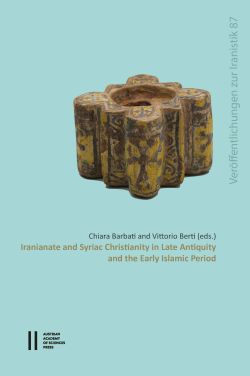
Iranianate and Syriac Christianity in Late Antiquity and Early Islamic Period, pp. 181-216, 2021/12/21
What portrait of Sasanian Christians can be drawn from the study of their names? The most important prosopographical documentation of the Sasanian Empire (3rd–7th centuries) concerns the Christians. The ques-tion of name choice helps to illustrate the multicultural dimension of this empire. A very valuable collection of Iranian names has already been com-piled by Ph. Gignoux, Ch. Jullien and F. Jullien based on Aramaic and Syriac sources. However, these Iranian names have yet to be compared with other Sasanian Christians’ names. By clearly specifying the limits of the onomastic method, such a study of names reveals both profound regional evolutions in the use of names, but also important linguistic influences and, where the persons concerned can be identified as Christian, a great porosity of cultural and religious practices. Thus, it contributes to the existing litera-ture by deepening the understanding of cultural exchange and community interactions within Sasanian Mesopotamia.